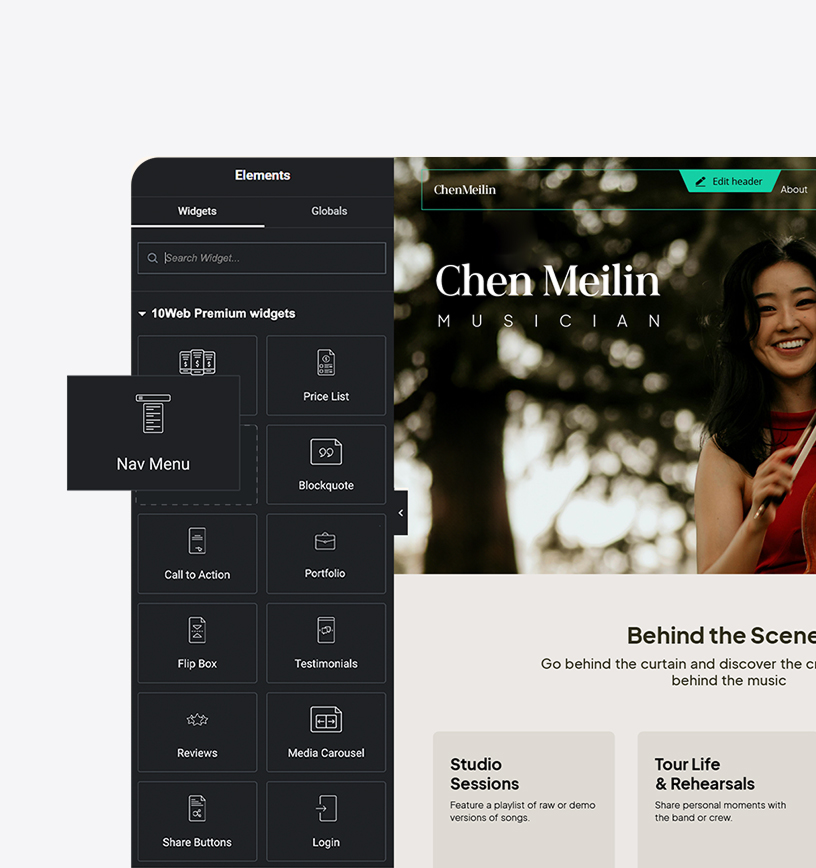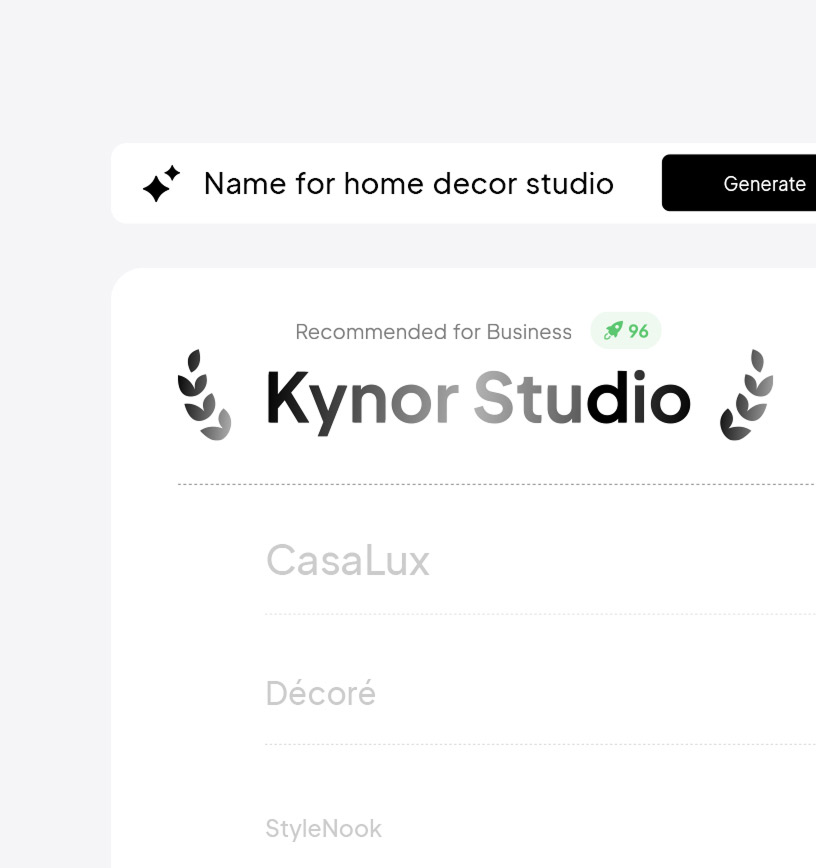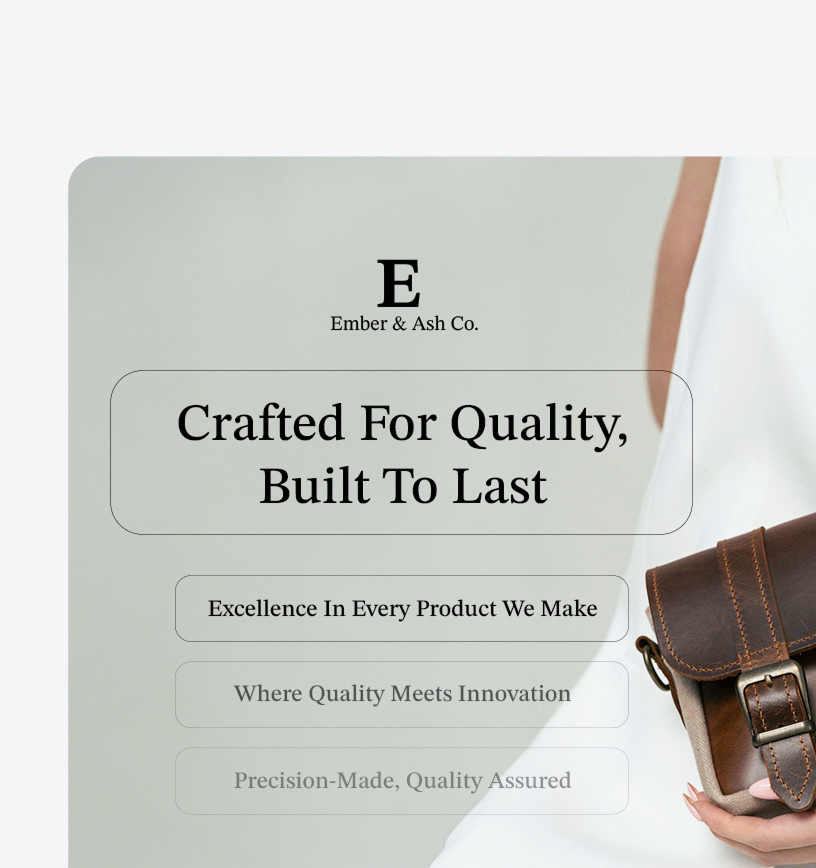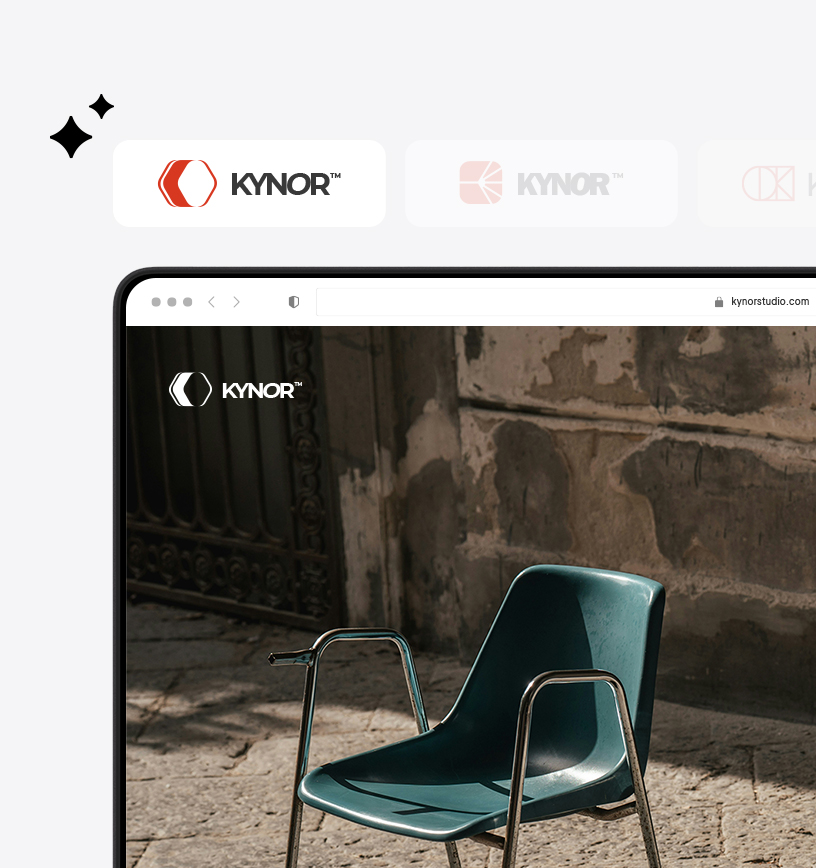Orchestra Name Generator
Generate a unique name for your orchestra in seconds, and start building your brand with AI.
Not sure what to type? Check out these examples.
Check these awesome
orchestra name ideas.
While finding the perfect name for your orchestra, sometimes all you need
is a little inspiration. Here are some of our top picks to help you get started:
How to name your orchestra.
Follow these three simple steps to find a perfect name with 10Web's Orchestra Name Generator.
Describe your
business.
Type in some keywords or a short description of your orchestra, and our AI tool will suggest customized names for your musical group.
Select your
favorite name.
Browse our selection of orchestra name ideas, choose one that fits your vision, or modify your input to discover a better option.
Take your
business online.
Get a fully functional AI-generated website for your orchestra, a professional logo, and a free domain to start your musical presence online.
Benefits of using
Orchestra Name Generator.
Discover the advantages of our tool that streamline the process of naming your orchestra, ensuring creativity and resonance with your musical mission.
Creative inspiration
The 10Web's Orchestra Name Generator sparks unique ideas specifically tailored for orchestral groups. It helps you find a name that captures the essence and sophistication of classical music.
Brand relevance
This tool ensures the name resonates with the cultural and artistic values of an orchestra. It filters out names that don't align with the musical and professional image you aim to project.
Domain check
The generator includes a domain availability check, making it easy to secure a web presence that matches your orchestra's name. This is crucial for marketing and online visibility.
Memorable names
Names generated are not only unique but also easy to remember, which is vital for audience retention and word-of-mouth promotion in the music community.
Market appeal
Using the 10Web's Orchestra Name Generator helps in crafting a name with strong market appeal, attracting sponsors, patrons, and new audience members interested in classical music.
Legal simplicity
The tool also checks for potential trademark issues, reducing the risk of legal challenges so you can focus more on music and less on legalities.
Explore more industries.
Whether you're starting a tech company,
opening a restaurant, launching
a fashion brand,
or venturing into
ecommerce, our tool provides tailored
name suggestions for every sector.
Tips for naming your orchestra.
Harmonize your brand's essence with the perfect name—use these tips to make your orchestra stand out.
Reflect genre diversity
Consider the range of music your orchestra plans to perform when choosing a name. If you aim to cover a wide array from classical to contemporary, ensure the name communicates this versatility without aligning too closely with a specific musical era.
Incorporate locality
Using a geographic marker in your orchestra's name can instill a sense of community pride and belonging. It helps local audiences identify and connect with your ensemble, potentially boosting attendance and local support.
Consider the ensemble size
The size of your orchestra could influence its name. Terms like "chamber," "symphony," or "philharmonic" indicate different scales and types of orchestras, which can affect public perception and expectations about your performances.
Use musical terminology
Incorporating musical terms or concepts (like "Crescendo," "Capriccio," or "Allegro") can attract a knowledgeable audience and reflect the artistic nature of your orchestra. Choose terms that resonate with the emotion or style your orchestra embodies.
Play with alliteration
Alliterative names are catchy and memorable. Try to pair words that start with the same letter and relate to your orchestra's unique features or the music you specialize in, enhancing the name's rhythm and recall.
Avoid restrictive names
Steer clear of names that could limit your orchestra's future growth or scope. For example, naming after a specific composer or musical period might restrict the repertoire you are expected to perform and alienate potential audience segments interested in a broader musical experience.
Frequently asked questions.
What is 10Web's Orchestra Name Generator?
10Web’s Orchestra Name Generator is a free online tool designed to help individuals and organizations come up with unique and creative names for their orchestra. It provides multiple options to choose from, ensuring you find a name that resonates with your musical ensemble.
How can I use the Orchestra Name Generator to find a name for my orchestra?
Simply visit the 10Web Orchestra Name Generator website, enter a keyword that you want your orchestra name to reflect, and hit the generate button. The tool will then present you with a list of available names based on your input.
Can I use the Orchestra Name Generator for different types of orchestras?
Yes, the Orchestra Name Generator is versatile and can be used to generate names for various types of orchestras, whether it’s a symphony orchestra, chamber orchestra, or a youth orchestra. Just include your specific type in the keywords for more tailored results.
What should I consider when choosing a name from the Orchestra Name Generator?
When choosing a name from the Orchestra Name Generator, consider how it reflects your orchestra’s identity, its uniqueness, and ease of pronunciation. Also, check for the availability of the domain name and any existing trademarks to avoid legal issues.
Is there a limit to how many times I can generate names with the Orchestra Name Generator?
No, there is no limit to how many times you can use the Orchestra Name Generator. You can generate names as many times as you need until you find the perfect name for your orchestra.
How do I know if the names generated by the Orchestra Name Generator are not already in use?
It’s important to conduct a thorough search to ensure the names generated are not already in use. Check online domain availability, social media platforms, and trademark databases to ensure the name you select is available and does not infringe on any existing trademarks.
What if I'm not satisfied with the first set of names generated by the Orchestra Name Generator?
If the first set of names doesn’t meet your expectations, you can always generate a new set of names. The tool allows for multiple generations, giving you a wide range of options to choose from until you find the one that best suits your orchestra.
How can I make sure my orchestra's name stands out in the market?
To make your orchestra’s name stand out, choose a name that is memorable, easy to pronounce, and reflects the unique characteristics of your group. Consider the emotional impact of the name and how it connects with your audience to ensure it makes a lasting impression.







